
2022 Nominees for ASOR Board Elections
Nominees for Membership-elected Trustees
(two to be elected)
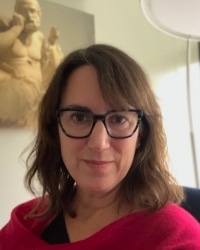
Sarah Kielt Costello
Sarah Kielt Costello (MA Classical and Near Eastern Archaeology, Bryn Mawr College; Ph.D. Anthropology, Binghamton University) is Associate Professor of Art History at the University of Houston – Clear Lake, a Hispanic-serving regional university dedicated to educating a broad community of scholars, including first-generation, working-class and incarcerated students. She has won two University-wide teaching awards. At UHCL, she recently completed four years on Faculty Senate, including a leadership position in which she oversaw the creation of a new, equitable workload policy for faculty. She has been active in archaeological fieldwork since 1995, working in Israel, Turkey, Greece and Cyprus. In her research, Costello specializes in seals and related artifacts; ethics and museum practices; Neolithic imagery; and archaeological theory. Her recent publications include Object Biographies, Selections from the Art of the Ancient World in the Menil Collection (Menil/Yale 2021), a volume that takes on the ethical challenges of unprovenienced museum collections. She is in the final stages of co-editing a volume on Ethics for the ASOR Annual (AASOR).
Mission Statement: In the approximately 25 years that I’ve been involved with ASOR, I’ve seen its membership grow significantly and its members develop far-ranging research agendas. In recent years, ASOR members have forged research pathways into areas such as ancient dress, sensorial archaeology, climate, bioarchaeology and cultural heritage, and have been on the forefront of developing cutting edge digital and technological approaches to archaeology. Geographically, ASOR has had the opportunity to expand beyond its traditional emphasis on the archaeology of the Bible Lands as its members have engaged in projects in Central Asia, Kurdistan, Egypt, and the Gulf states. It is vital that ASOR continue to embrace new areas of research, and at the same time, confront the ethical challenges of our time by setting agendas and policies that move us forward and establish models of best practices. As a Trustee, I would support the work the organization is doing on ethical issues from equity to climate change. I would also help develop and support outreach efforts that further connect ASOR with students from a range of backgrounds, interests and means.
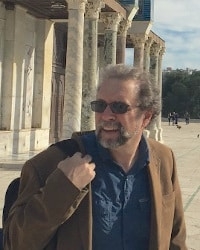
Paul Flesher
Paul Flesher is a Professor of Religious Studies at the University of Wyoming and presently directs the American Heritage Center, a large archive whose holdings extend from American history and literature to the Ancient Near East. Trained as a historian of ancient Judaism, with expertise ranging from the Second Temple to the early Byzantine periods, he has excavated on the staff of Tel Miqne-Ekron, Huqoq and Legio as a computer technician and an area supervisor. In 2016, he held the Seymour Gitin Distinguished Professorship at the Albright and began his current research reconstructing the acoustics of ancient Galilean synagogues.
Mission Statement: The heart of ASOR is archaeological excavation. Indeed, fieldwork provides the fastest growing body of knowledge about the ancient Near East. For more than a century, ASOR has provided support structures and a strong disciplinary environment that have advanced American archaeological work in the region.
With excavation at its core, ASOR’s primary activities feature dissemination and preservation. With regard to the former, ASOR’s strategic plan lays out a multi-pronged strategy that focuses on publication, outreach and education. This plan continues to build on activities the Society has pursued for more than a century, now expanding into digital publication and social media.
With regard to preservation, new technology provides challenges the field is only beginning to address. GIS, GPR, and Lidar provide a wealth of new information about architectural sites, but how is this born-digital data preserved as part of the coherent excavation record for future researchers? Even the photogrammetric recording of daily top plans brings on preservation challenges not faced by their hand-drawn predecessors. ASOR needs to provide leadership in addressing these matters.
As the head of national archive, I have begun to tackle these issues by providing the ASOR archive with a permanent home and by offering a place to other archaeological records from excavations, organizations and other sources. If reelected as a membership trustee, I will continue to work within ASOR to meet these preservation challenges so that the results of the field’s advanced site analyses are not lost to future generations.
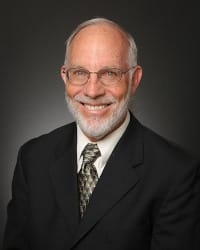
Robert Mullins
Robert Mullins is a professor of Biblical Studies and Archaeology at Azusa Pacific University in Los Angeles where he is also Chair of the Department of Biblical and Religious Studies. He received his Ph.D. in Archaeology from the Hebrew University of Jerusalem where he supervised areas at Tel Beth Shean and Tel Rehov under the direction of Prof. Amihai Mazar with whom he also worked as a research assistant. Outside of Israel, he worked for two projects in southeastern Turkey at Tell Atchana (Alalakh) and Zinçirli Höyük (Samal) under the auspices of the University of Chicago. Bob currently co-directs the excavations at Abel Beth Maacah in northern Israel with two long-time friends and colleagues from the Hebrew University of Jerusalem. His interests encompass Egyptian-Canaanite interaction during the Late Bronze Age, the Late Bronze/Iron Age I transition, and cross-cultural interaction in the Levant and Eastern Mediterranean. In addition to publications related to the Abel Beth Maacah, Tel Beth-Shean, and Tel Rehov projects, Bob also wrote “The Late Bronze Age” with Eli Yannai in Volume 3 of The Pottery of Ancient Israel and Its Neighbors, and the Atlas of the Biblical World with Mark Vitalis Hoffman.
Mission Statement: I have been a member of ASOR since 1996 and would like to renew my service on the Board of Trustees. Over the years, I have witnessed ASOR’s growth into a creative, vibrant, and diverse organization that better serves its members and instills a greater appreciation of our profession to the public. I remain committed to our mission regarding the history, people, and cultures of the Near East. I will continue to support policies that foster growth, sustainability, diversity, and inclusiveness. I will continue to advocate for a culture of inquiry, scholarship, and collegiality that engages students and encourages international involvement, especially among students and professionals from underrepresented regions. This includes ASOR’s cultural heritage initiatives in North Africa, Syria, and other regions where we regard heritage documentation and preservation as a professional responsibility. As the co-director of an archaeological project that has benefited from student access to ASOR-funded excavation scholarships, I want to ensure that our membership does not lessen its financial and professional commitment to our younger scholars. ASOR has much to gain from a vision that articulates a clear purpose, demonstrates a high level of integrity, maintains fiscal stability, and promotes organizational structures and processes that effectively fulfill its purposes.
Nominees for Institutionally-elected Trustees
(two to be elected):
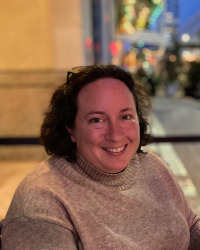
Kathryn Grossman
Kathryn Grossman is Assistant Professor of Anthropology in the Department of Sociology and Anthropology at North Carolina State University. She is an archaeologist with expertise in the Chalcolithic and Bronze Age cultures of Cyprus and Mesopotamia and a methodological specialty in zooarchaeology. She is Director of the ASOR-affiliated Makounta-Voules Archaeological Project, as well as zooarchaeologist for the Kani Shaie Archaeological Project (Iraqi Kurdistan), the Wadi el-Hudi Expedition (Egypt), the Petra North Ridge Project (Jordan), and the Temple of the Winged Lions Cultural Resource Management Project (Jordan). She is currently co-editing, with Jesse Casana and Eric Jensen, the final report on the excavations at Tell Qarqur, Syria.
Mission Statement: I have been involved with ASOR for fourteen years. I began attending and presenting at the annual meeting as a graduate student, and my engagement has deepened over time. I served on the Committee on Archaeological Policy for two terms, and during that time I also chaired the CAP Fellowships Subcommittee. In 2018, I presented the work of the Fellowships Subcommittee at that year’s Legacy Dinner, and last year I received an ASOR Service award for my work on the CAP Fellowships Subcommittee. I am currently co-chairing, with Caroline Sauvage, the Archaeology of Syria sessions at the Annual Meeting, and I serve as the institutional representative for ASOR at North Carolina State University. In my time as an ASOR member, I have watched the organization grow dramatically in its geographic scope and evolve to meet the demands of 21st-century scholarship. In serving as an Institutionally-elected member on the ASOR Board of Trustees, I look forward to helping ASOR move forward with the issues that loom before us, including addressing our climate impact, increasing our outreach to diverse audiences, and promoting the preservation of tangible and intangible cultural heritage.
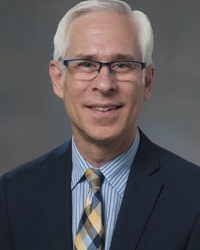
Michael G. Hasel
Michael G. Hasel is Director of the Institute of Archaeology and Lynn H. Wood Archaeological Museum at Southern Adventist University, where he also serves as Professor of Near Eastern Studies and Archaeology since 1998.
Hasel has participated and served in administrative capacities on eleven different excavations in the Middle East, including Gezer, Ashkelon, Dor, Miqne-Ekron, Masada, and Hazor, in Israel; Idalion, Cyprus; and Jalul in Jordan. He has directed excavations and surveys at Khirbet Qeiyafa and Socoh and currently is co-director of The Fourth Expedition to Lachish. As curator of the Lynn H. Wood Archaeological Museum, Hasel was responsible for planning and displaying art and objects from the ancient Near East in a state-of-the-art exhibit entitled “Vessels in Time: A Journey into the Biblical World” and several temporary exhibits including “Peace and War: The Assyrian Conquest of Lachish” (2023-2025).
Hasel, an ASOR member since 1989, has chaired several ASOR sessions and served on the Agenda Committee. He held the Samuel H. Kress Fellowship at the W. F. Albright Institute for Archaeological Research (AIAR) in 1995-96 and a Fulbright at the Cyprus American Archaeological Research Institute (CAARI) in 2005. He is also a fellow of the Institute for Biblical Research.
Hasel joined the ASOR Board in January 2014.
Mission Statement:Over the past 33 years of my involvement with ASOR, I have watched ASOR grow into a strong society representing a wide variety of interests and research foci in the ancient Near Eastern and Mediterranean worlds. During that same period, I have been actively involved in excavations in Israel, Jordan, and Cyprus while also engaged in Egyptological research. As an excavator I am interested in encouraging the archaeological interplay between text and material culture. This integration has been one of the historic strengths of of ASOR and I believe it remains vital as ASOR continues to position itself as an important and relevant voice to a large segment of North America. As a museum director part of my vision is to make our field relevant for future generations through popularizing archaeological discoveries and making it accessible to a larger segment of society. This would include encouraging young scholars who are searching for direction and belonging to get involved in ASOR while fostering connections in the regions it serves. To accomplish these goals, I would welcome the opportunity to continue to support and serve as a member of the Board of Trustees for another term.
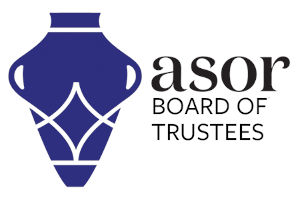 Trustee Nominations Committee has selected five highly qualified members to stand for election for four open positions on the Board of Trustees. The Board sets the direction for ASOR and provides oversight for our organization. Among other responsibilities, members of the Board agree to attend two meetings each year, to participate thoughtfully in the governance process, and to contribute financially to ASOR.
Trustee Nominations Committee has selected five highly qualified members to stand for election for four open positions on the Board of Trustees. The Board sets the direction for ASOR and provides oversight for our organization. Among other responsibilities, members of the Board agree to attend two meetings each year, to participate thoughtfully in the governance process, and to contribute financially to ASOR.